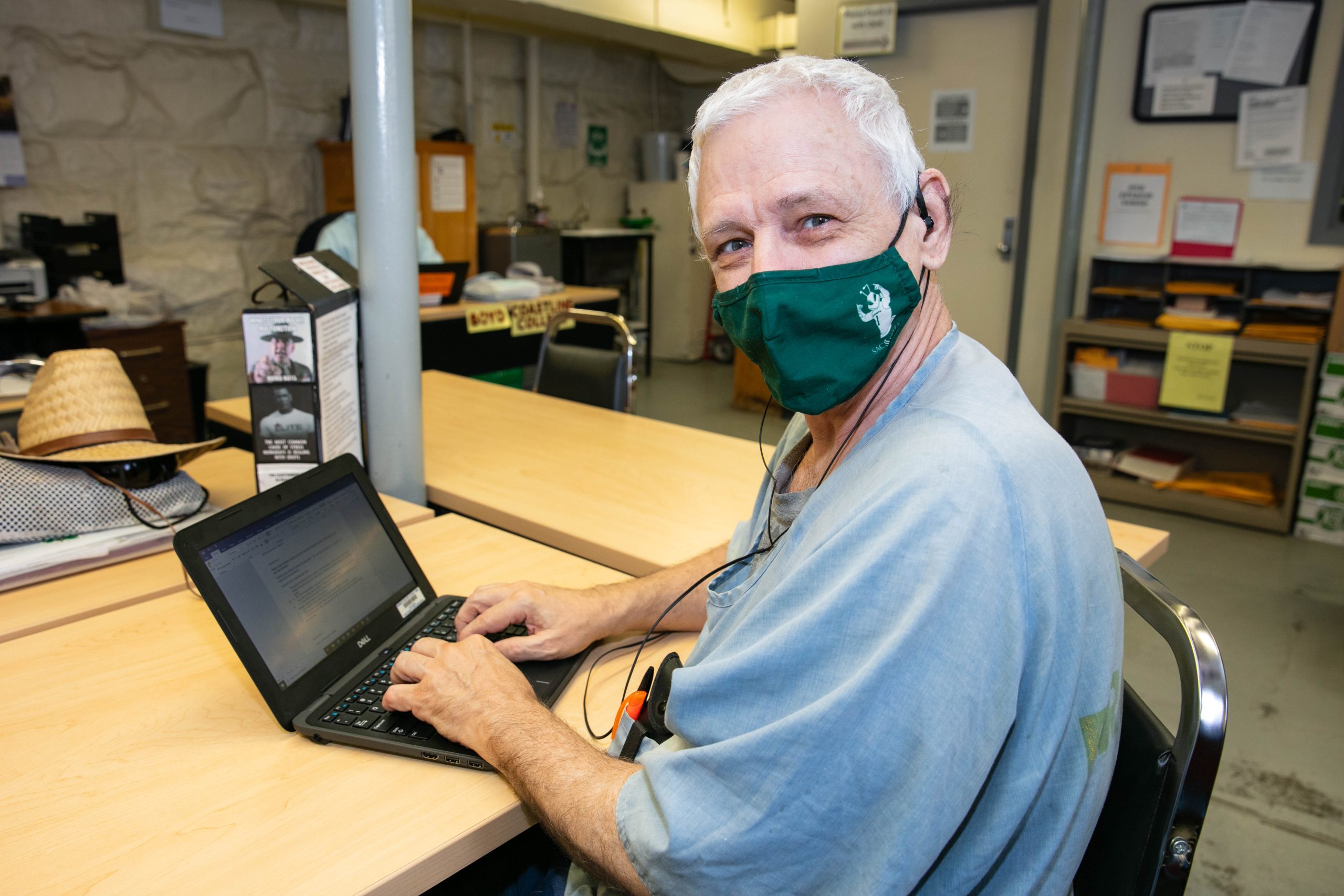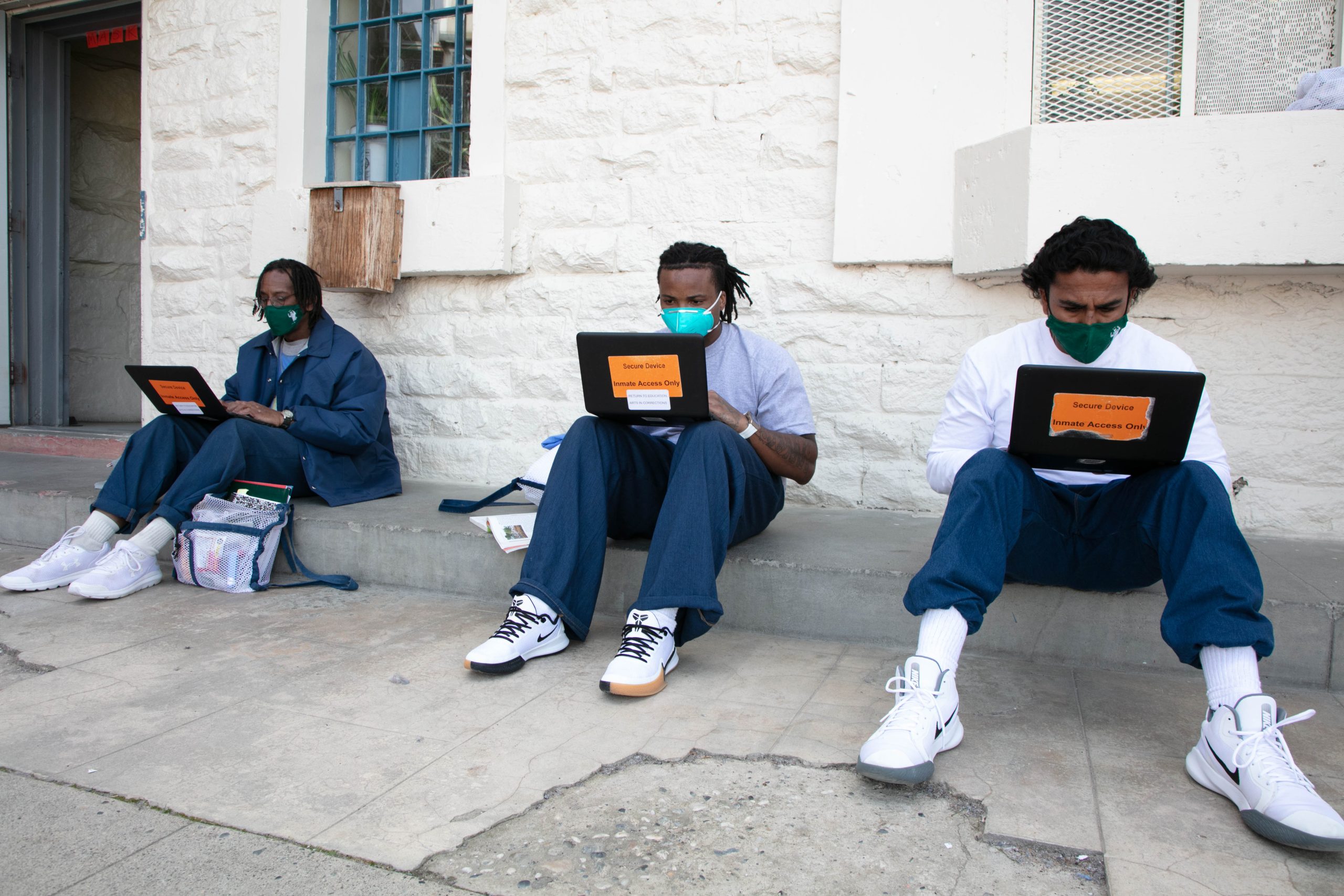(Editor’s note: Secure laptops are being distributed at CDCR institutions to further rehabilitation efforts. See the video below.)
CDCR to deploy 30,000 devices in coming years
Technology has transformed nearly every part of our daily lives, from how we communicate with our loved ones to how we consume media, search for jobs or plan for our futures. Just like technology is transforming the world outside, it’s also changing what rehabilitation looks like in state prisons.
CDCR is rolling out about 30,000 secure laptops to incarcerated students attending face-to-face college programs. The laptops contain standard Microsoft Office applications, a link to the Division of Rehabilitative Programs (DRP) Learning Network, and pre-loaded approved bookmarks. This gives students access to Internet sites approved by academic instructors as appropriate for research.
Using laptops, students will be able to interact with teachers and fellow students in new and innovative ways. These include accessing a variety of secure educational courses, standardized testing, and approved research sites. Using Canvas and other digital learning platforms, students are able to enhance their education through secure online research that was not possible before.
Student: ‘It helps us get ready for the world’
“This is rehabilitation,” shared student Robert Thomas. “It helps us get ready for the world, for the next step. Everybody’s not going to be in here forever.”
“The laptops are a godsend,” enthused Professor David Zuckerman, who leads the Transforming Outcomes Project at Sacramento State University (TOPS). The group runs a face-to-face college program at Folsom State Prison (FSP). “The laptops are really transformative to what we can do. I really applaud the vision of CDCR and the ambition of CDCR to put these laptops in these students’ hands.”
CDCR received $23.2 million in General Funding in Fiscal Year 2021-22 to deploy the laptops and build out infrastructure to support the expanded student network. The goal is to make laptops available in all education classrooms, giving every student access to a computer. While the rollout begins with college programs, Adult Basic Education and Career Technical Education courses will also be included.
Collaboration, teamwork necessary to roll out secure laptops
It is a huge undertaking that would not have been possible without the collaboration of the Office of Correctional Education (OCE) and Enterprise Information Services (EIS).
“The work was a tremendous partnership between EIS and OCE,” said Lynne Ruvalcaba, Supervisor of Correctional Education Programs (OCE). “EIS identified the devices, procured, and prepared them for distribution to our students. (We also) ensured access at the individual institutions. OCE was responsible for selecting the Learning Management System and preparing it for use in a restricted environment. OCE also trained scores of teachers and students to use the devices. In many cases, our students had never had access to their own computers.”
Important work for rehabilitation, re-entry
The effort involves a significant amount of training and visits to each institution. This allows teams to deploy, train, and troubleshoot as the computers are delivered and made available to students. Everyone involved knows the work is worth it when they look at the bigger picture of rehabilitation and public safety.
Sylvia Dumalig, Chief of Offender and Family Solutions (EIS), said the project opens a door to a new world for participants.
During their incarceration, technology has continued to evolve, she explained. This initiative gives students the tools necessary to evolve as well by learning how to use technology.
“This initiative provides incarcerated citizens with opportunities to learn technologies being used in our daily lives, including in schools,” Dumalig said. “This will prepare them for employment, furthering their education when they are released.”
Meet two people behind the project.
By Krissi Khokhobashvili, Chief, Strategic Communications & External Affairs
Video by Rob Stewart, TV Specialist
Photos by Clarissa Resultan, TV Specialist



Read more rehabilitation stories.
Follow CDCR on YouTube, Facebook, X (formerly Twitter). Listen to the CDCR Unlocked podcast.